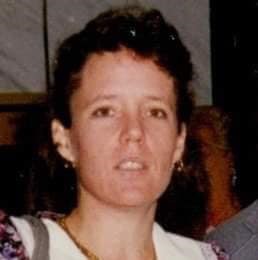By Cory Hutchinson
After my mother was diagnosed with MSA, I thought the remainder of our time together would consist of my father and I helping her manage daily life, making sure she took her medications, and making sure she was happy. I was blindsided by the difficulties that would befall us within a year and a half of her diagnosis. She experienced symptoms for about one year before her original diagnosis of Parkinson’s Disease. Subsequently, her symptoms progressed rapidly for about two and a half years, before she was eventually diagnosed with multiple system atrophy. That diagnosis didn’t rock me as much as I thought it would, because to me, it seemed as though she had something far more rapidly progressive than Parkinson’s, for quite some time. 
While some days were positive, and some hard, there was consistency for almost a year. Her medications worked like they should, and her doctor was able to make small changes if needed. Eventually, the medications couldn’t handle the progression of the disease, and it became clear that she would need someone to take care of her while my father and I worked. We couldn’t afford not to work, and we refused to have my mom live in an assisted living facility. I’ll forever be grateful that when her life ended, she was still in her own house. That’s one of the asks I had for the universe, and while so many of them weren’t granted, I appreciated that that one was.
When it came time to find a caregiver, there were many in my area. I could pick up a phone and have a caregiver ready to start within a day. The issue was with payment. In the State of Florida, private insurance companies don’t pay for caregivers, outside of one hour per day to manage medications. That was not a solution for us, as my mother needed someone to be with her all the time. We faced the difficulty of trying to find resources to pay for a caregiver, while trying to manage work, caring for her, and her disease progression.
Understanding that my mom’s private insurance wouldn’t pay for a caregiver, we had to find other resources to help. Stating that looking for financial resources for a caregiver is a full-time job is not an understatement! Eight-hour workdays paled in comparison to the phone calls and emails needed to reach someone who could guide us in the right direction. Eventually, we reached that point, and found a state program that will pay for a full-time caregiver for a patient with a terminal illness. With Tidewell Hospice in the picture, we were able to get my mom qualified for assistance. The entire process took nearly one month of full-time work, to eventually get the process started. It took almost one year for the funding to be approved, but it did help significantly when we finally received approval.
Had we known the amount of time and energy that would be spent on finding resources for a caregiver, we would have started years earlier. I will also use this space to advocate for long-term health insurance. This form of private insurance would have covered a private caregiver for my mom. Regardless, when funding was approved, an enormous weight was lifted from my family’s shoulders. My mom received the care she needed until her death, which allowed us to focus on her wants more than her needs. I like to think that helped us make her time happier before she left.
I cannot understate the importance of having a plan when it comes to paying for a caregiver, paying for medication, trips to the doctor, etc. I advocate for anyone with a family member who has MSA to consider these expenses early on. There are resources available, but they take time to access. Plan early to allow yourself more time for what’s important- spending time with your loved one. I miss you, Mom.